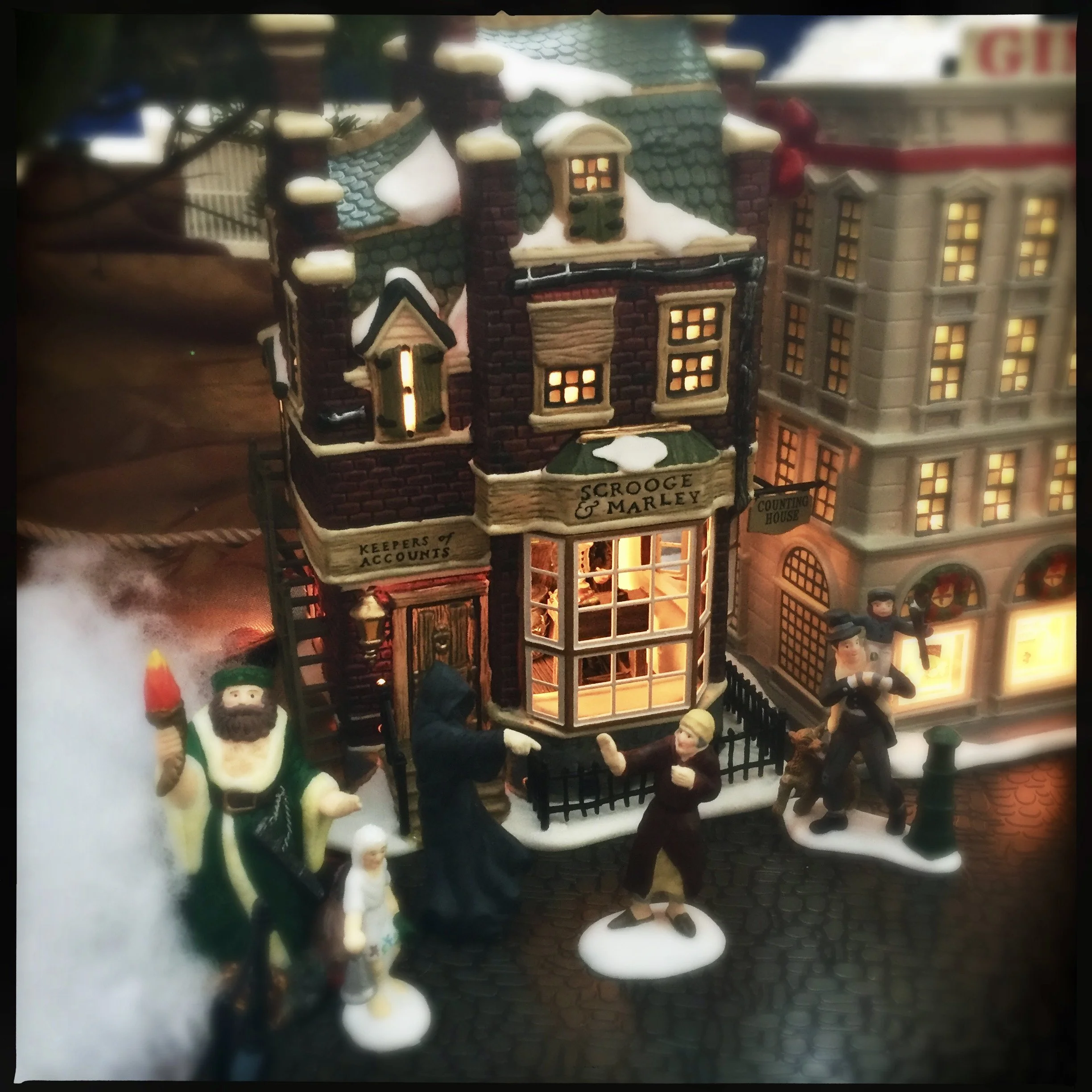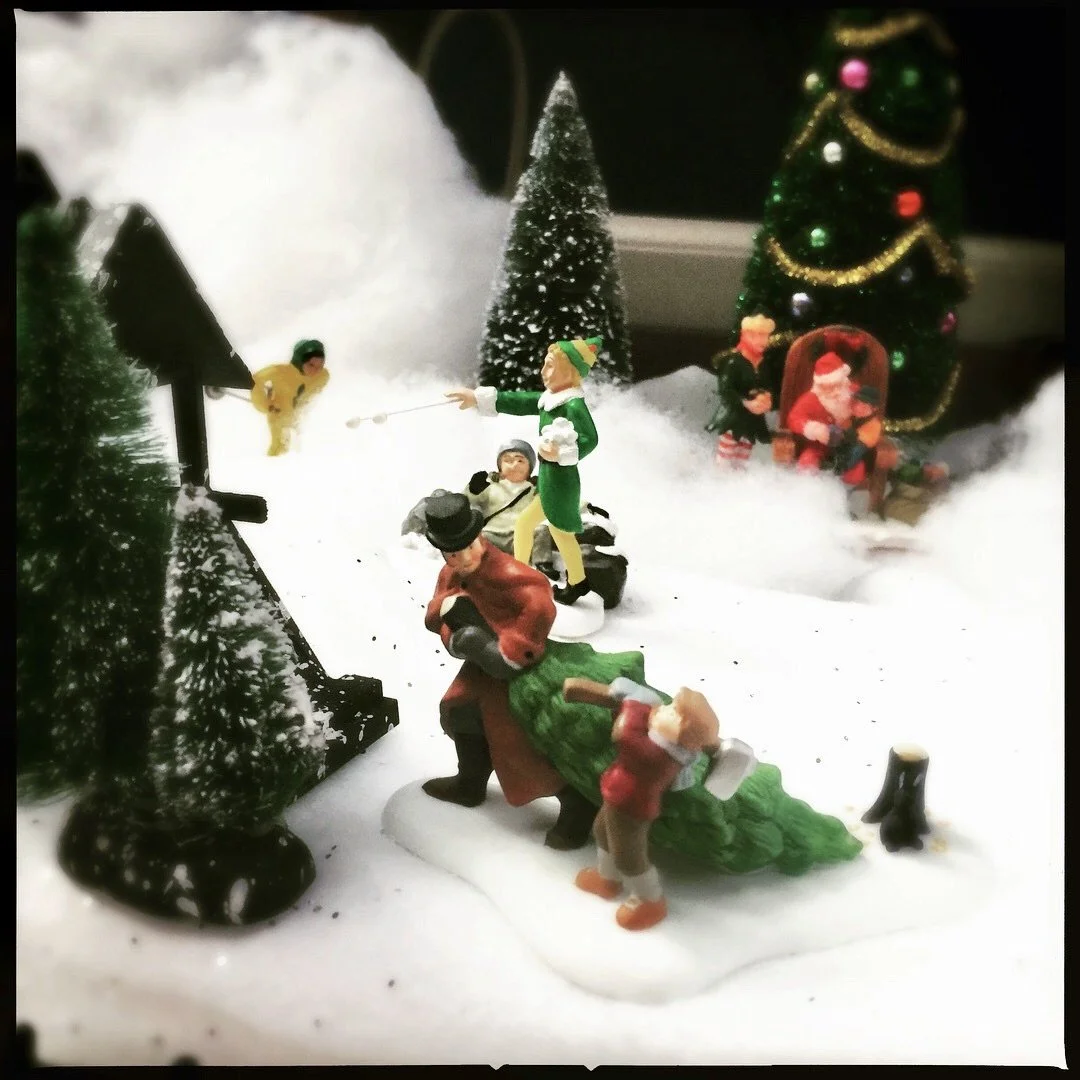Before Christmas arrives, I feel like I ought to share with you a couple of SleuthSayers holiday posts I did that never really got much play here on my blog. In fact, I never mentioned an article I did on the enduring mystery at the heart of the immortal classic, A Christmas Carol. Namely, what ails Tiny Tim?
You can find out more about the story in a post entitled:
The Mysteries at the Heart of the Season!
Think about it: the poor child limps around on a crutch, dies of his illness in a flash-forward scene (courtesy of the Ghost of Christmas Yet to Come), but then miraculously lives when Scrooge repents and agrees to help the Cratchits. Just what kind of deadly illness would have been so reversible in Dickensian London?
Turns out, a number of medical diagnosticians have pondered this question, resulting in a flurry of peer-reviewed academic papers. I scoped out some of them so you don’t have to, and shared the interesting results. I hope you’ll check it out. You will also get a glimpse into another medical mystery in the same work by Dickens: What’s the deal with Scrooge’s bizarre crying/laughing jag when he wakes from his third ghostly encounter?
I don’t blame you if you don’t know what I’m talking about. The scene I’m referencing goes by quickly in the actual Dickens text, and very few film versions dramatize it. But the production starring Patrick Stewart does, and it’s worth a look. (You can watch the embedded YouTube video at the SleuthSayers link above.)
I’ll mention just two more Christmas posts I did, because I’m pretty proud of them. A while back, I did a two-part series on another Christmas mystery: Who really wrote the poem we all know as Twas the Night Before Christmas?
For 200 years, the story of St. Nick dropping down a chimney to leave presents for an unnamed family has been attributed it to a New York churchman C. Clarke Moore. Nearly every children’s picture book that’s ever been printed prints his name on the cover. But some scholars think another man wrote the poem, and that Moore took the credit for it.
Two significant studies in this century tilted the balance in favor of the other guy. I’ve been fascinated with this case, especially since this is probably the best-known poem in American literature, one that spells out clearly so much of the Santa Claus myth. The night he comes, how he’s dressed, how he enters homes, his method of travel, and the number and names of all his reindeer. Truly, so much of what we know about the fur-clad dude comes from this one work of art.
You can find out more about the controversy in these two posts:
The Greatest Christmas Mystery, Ever (Part I)
The Greatest Christmas Mystery, Ever (Part II)
That’s about all I have for you, Christmas-wise. But if you are moved to investigate these two books further, you might want to look at my post on best Christmas books. In that article, I list the two versions of these famous stories that I like best. You can find facsimile editions of A Christmas Carol these days, but the one I like best is a digital ebook. And you can find a great audiobook version of A Visit from St. Nicholas that is read by the Dude himself, actor Jeff Bridges. Check out my recommendations here:
Best Christmas Books
As we hurtle towards the end of the year, I wish you and yours the very best.




